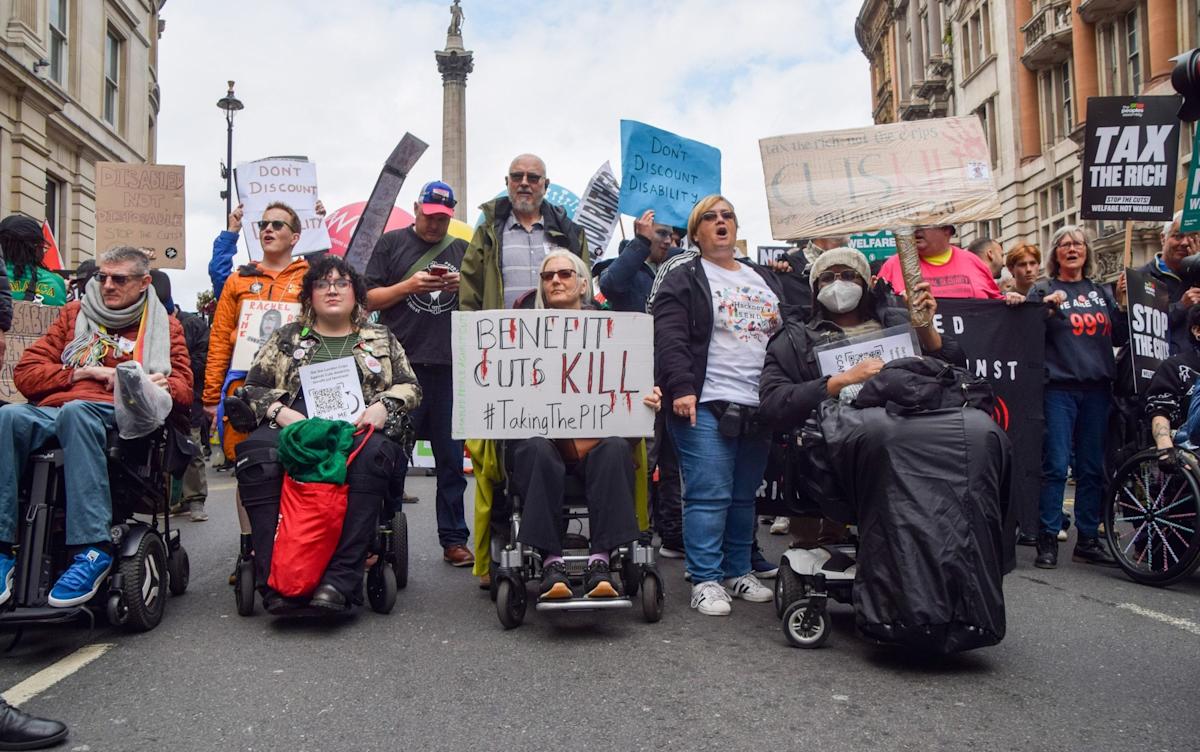For the first time, the majority of Britons think disability benefits are too high, a survey has found.
Less than half (45 per cent) of Britons support more spending on benefits for disabled people who cannot work, according to research conducted by the National Centre for Social Research (NatCen) as part of its annual British social attitudes (BSA) survey published on Wednesday.
The record low percentage has fallen from 56 per cent in 2021, and is also down 22 points on the 2017 figure of 67 per cent. It is far less than the proportion in 1998 (72 per cent), when the question was first asked.
The NatCen researchers said: “Although overall sentiment towards disability benefits has become less favourable, the public will not necessarily endorse specific ways of making it more difficult to claim them.”
The survey comes as the Government is preparing to reform the welfare system by cutting disability benefits. Ministers have said that the changes will not only help people get back into work, but also save the economy £5 billion by 2030.
The reforms include making it harder for disabled people with less severe conditions to claim personal independence payments (PIP), as well as cuts to sickness-related elements of Universal Credit.
Many Labour rebels are calling for the Government to pause legislation to bring about the changes. However, Prime Minister Sir Keir Starmer has said he will continue with the overhaul despite the opposition from his own party, saying that there is a “clear moral case” for change.
Regarding disability benefits, NatCen researchers also found that while 29 per cent of people believe that it is “too easy” for people to be able to claim disability benefit, just as many, 29 per cent, feel it is “too difficult”. Only 11 per cent of Britons believe that spending on disability benefits should be reduced.
Prof Sir John Curtice, senior research fellow at NatCen said: “Tightening up on disability benefits is potentially controversial, as the government has already discovered.
“The political difficulty with these policies is there are potentially identifiable winners and losers, and it is often the losers who shout the loudest. Pursuing economic growth rather than tax rises as the route out of fiscal constraint will not necessarily be the easier path for Labour to tread.”
NatCen’s annual report also surveyed Britons about their attitudes towards defence spending, politics and the economy.
Britons believe the US is now almost as big a threat to global peace as North Korea. Russia is viewed as a serious threat to global peace by 90 per cent of Britons, Iran by 78 per cent, North Korea by 77 per cent, Israel by 73 per cent, and China by 69 per cent, the research found.
However, the proportion of Britons who view the US as a security threat has also doubled since the re-election of Donald Trump in November. The NatCen researchers found that 36 per cent of people held this view during the presidential election campaign, compared with 72 per cent of people surveyed in spring 2025.
“Historical data clearly indicate that perceptions that individual countries represent serious threats to world peace have never been so widespread,” the researchers said.
The report comes as the National Security Strategy warned yesterday that the UK must “actively prepare” for the potential of a “wartime scenario” in its homeland for the first time in many years.
The Government review was published just 48 hours after Iran threatened to target UK bases following the US attack on its nuclear facilities.
The NatCen survey also found that the recent general election failed to reverse record low levels of trust and confidence in how Britain is governed, which has been mainly undermined by continued high dissatisfaction with the NHS, economy and Brexit.
It found that only 12 per cent of people trust governments to put the country’s interest before their party’s interests “just about always” or “most of the time” – a proportion that is even lower than the previous record low of 14 per cent registered in 2023.
